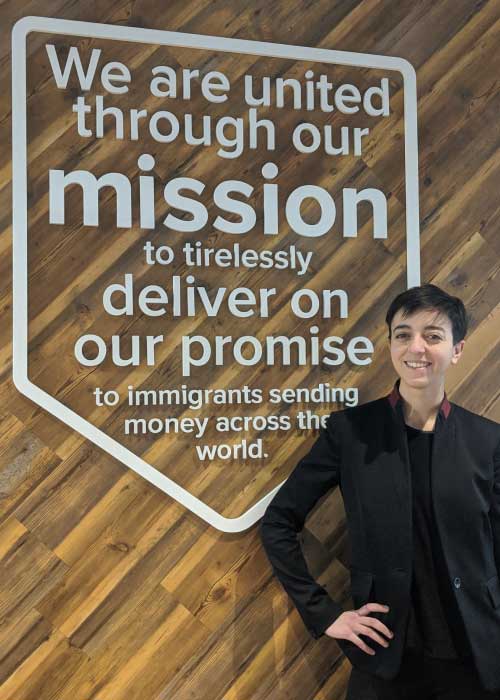Employees across Seattle are making a difference. It’s easy to get involved in small or large projects and to make an impact – every little bit helps. We love seeing innovation workers show up! Read about Seattle’s Inspirational Innovators, get excited, and find tips on how you can help.
This month we speak to Sarah Sedky, Software Engineer at Remitly, Inc, and Advocate and Educator at Consent Academy
How long have you worked for Remitly, Inc and what do you do there?
Including a summer internship I have been at Remitly for almost 2 years as a software developer on the Pricing Engineering team. We build tools for pricing analysts to determine the best prices to offer our customers.
Did you grow up in the Seattle area or did you move here for work?
I grew up in Saudi Arabia and the UK, then moved to the US for high school. I went to college in California and then moved to Seattle for the opportunity at Remitly.

How did you get interested in community service and volunteering?
In college, at Harvey Mudd, I was the president of the Mudd Advocates for Survivors of Sexual Assault, and in addition to advocating for and supporting survivors, we organized a lot of consent education events for the student body. It really got me interested in the nuances surrounding consent, regardless of the type of interaction. I got involved because I myself am a survivor, and I wanted to be a part of an organization that wanted to support other survivors, especially on a college campus.
What drew you to working with your current organization instead of other organizations?
When I moved to Seattle I attended a Consent Academy workshop, and I was in awe. In all the places I’ve lived I had never seen or heard of an organization doing the consent education work I had done in college, so I was extremely eager to interview for a role as an educator there. I still am not aware of many organizations that do what the Consent Academy does, so I’m really grateful that such a thing exists in Seattle and that I get to be a part of it.
In your role at the Consent Academy,can you give us a glimpse of what that entails?
The majority of my work is as an educator. We organize workshops and panels to discuss what consent looks like in a lot of different avenues. For the most part I teach a consent basics workshop, but we also offer courses on consent for leadership, consent for fitness instructors, how to talk to youth about consent, the list goes on and on.
I’ve also been trained as a consent advocate, which involves more one on one support for survivors. That can look like putting survivors in touch with counseling services, mediators, and being present for any reporting of assaults that have happened, if they want that. It can also look like putting the respondent in touch with resources for repair work or restorative justice.
What other ways do you support our local community?
Most of my other community building work I do at my job. I’m one of two co-chairs, and one of the founders, of the Out At Remitly employee resource group. Out organizes a handful of events at the office. Most notably we organized a bake off at the office during Pride week, where all the money raised was donated to Lambert House, a local LGBTQ+ youth org, and Remitly matched employee donations. We also recently organized an event to observe Trans Day of Remembrance in partnership with our RAMPA employee resource group in Manila. RAMPA stands for Remitly Ambassadors of Pride and Acceptance.
It can be taxing trying to solve complex social problems. How do you stay motivated as a volunteer?
Therapy! I’m super lucky that I’ve had great therapists ever since I started working as a consent educator, because vicarious trauma can be extremely overwhelming. I’m also really lucky to have been involved with organizations that put the advocates’ wellbeing at the forefront, so we were strongly encouraged to prioritize our mental health and take time off if we were starting to feel compassion fatigue or vicarious trauma.
What words of advice do you have for anyone interested in helping our community, but are unsure where to start?
It can be really overwhelming to try and solve all the problems we care about. In my experience, people who care about community organizing care SO much about all of the issues facing our community. So, my advice is to start small. Figure out a way you can get involved at your workplace, in your neighborhood district, in a community you’re already a part of. Starting with just one action step can help and make your organizing efforts a lot more effective than trying to get involved in every issue that a community faces all at once.
